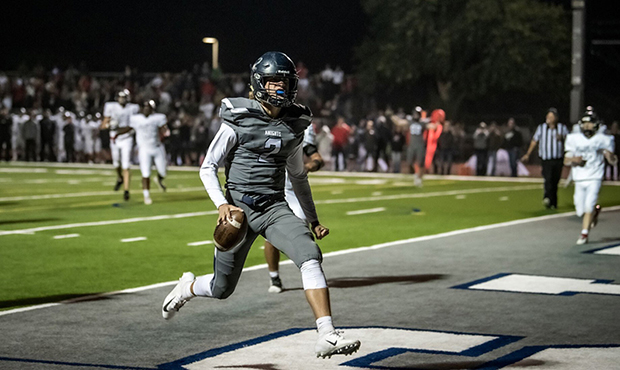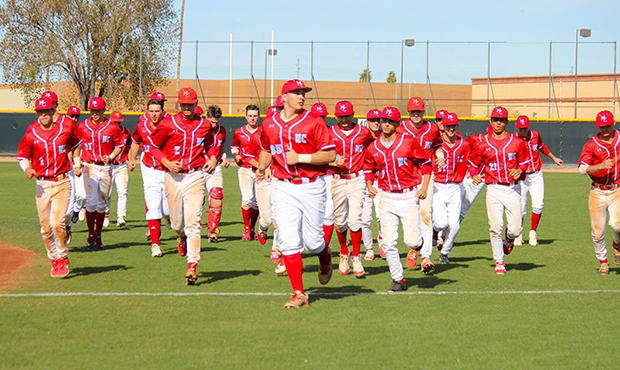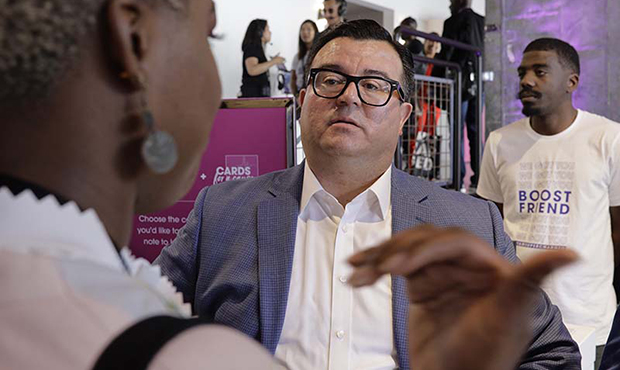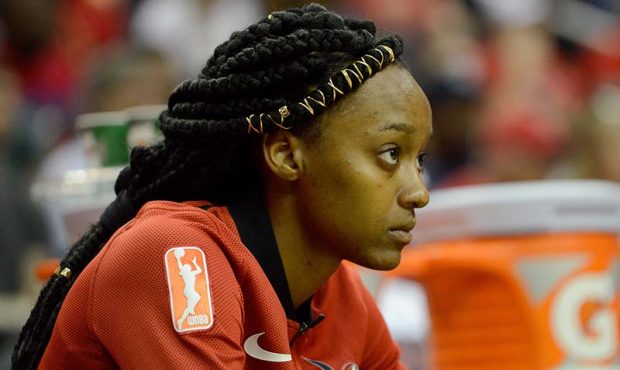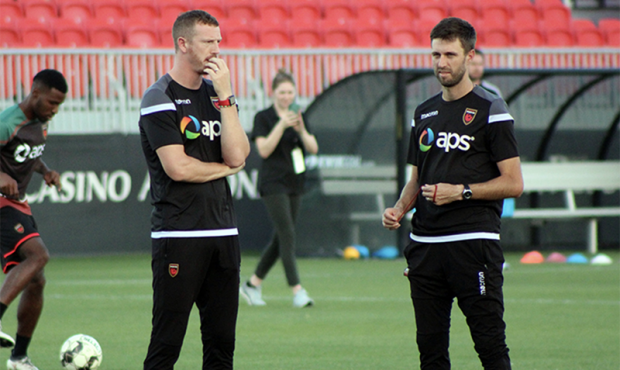Pac-12 OKs in-person workouts, tries to solve puzzle of COVID-19 state rules
May 27, 2020, 3:08 PM
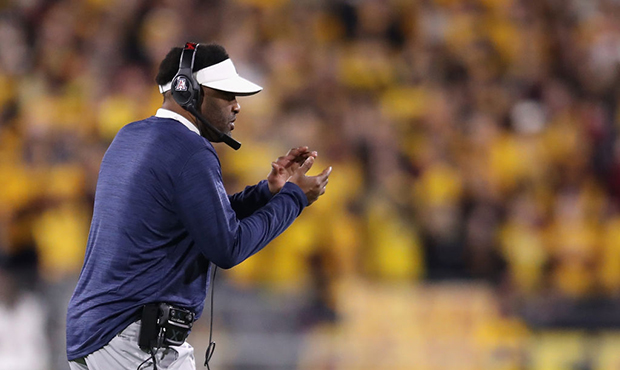
Head coach Kevin Sumlin of the Arizona Wildcats watches from the sidelines during the first half of the NCAAF game against the Arizona State Sun Devils at Sun Devil Stadium on November 30, 2019 in Tempe, Arizona. (Photo by Christian Petersen/Getty Images)
(Photo by Christian Petersen/Getty Images)
PHOENIX – Although the Pac-12 delivered news that suggested an on-time start to the college football season is possible, it still must wait to see how the six states that house the conference teams will handle the pandemic.
The league said in a statement Tuesday that it will allow for voluntary in-person athletic workouts for all sports to begin on June 15, “Subject to the decision of each individual campus and where permissible by relevant governmental entities.”
The states that make up the conference – Arizona, California, Oregon, Utah, Colorado and Washington – have moved at different paces while they reopen.
Arizona’s limitations have not been as strict as some other states. Gov. Doug Ducey allowed the state to reopen May 15 as it headed into Phase One.
Arizona coach Kevin Sumlin was able to conduct four spring practices, from March 2-6, before spring break.
“I think the big thing has been communication with players and their families, just about where we are in being honest, sometimes being honest about something you don’t know is OK,” Sumlin said during a recent webinar held by the Pac-12.
Sumlin is one of two coaches in the Pac-12 that was able to get several practices complete. Moving forward, his main concern is the safety of his players, he said.
“Everything we do is not about X’s and O’s, particularly during the last month and a half because lives have been changed, lives have been turned upside down,” he said.
Oregon went into a state of emergency March 8 with a total of 14 cases, and concerns grew from there as one of its border states, Washington, was one of the first and hardest hit. Oregon Gov. Kate Brown has designed a three-phase plan for the reopening of the state. A stay at home order was extended to July 6th, but some counties have been approved to enter into Phase One.
The University of Oregon, located in Lane County, is one of those in Phase One, which requires proper social distancing, with personal care services, restaurants and gyms to open with guidelines.
Ducks coach Mario Cristobal said he has been reminded of how important team camaraderie and chemistry is, as his Zoom calls run late because everyone is enjoying the company.
“You still got to stay fresh as a teacher while you’re doing this via Zoom … so what are you showing, what are you detailing before them to try to advance, try to get better in this game, increase their football IQ,” said Cristobal, whose team is coming off a successful 12-2 season, including a win against Wisconsin in the Rose Bowl.
“So they’ve got a bunch of guys that are 15, 20 minutes early and some of the conversations and some of the joking around last year going on was absolutely hysterical.”
South of Oregon, California coach Justin Wilcox is in a very different situation. Stett Holbrook, a spokesman for the university, told CNN last Tuesday that their campus is headed toward the direction of not fully reopening for the fall semester. Wilcox is ready for any plan that will help get back on the field and has been kept up to date by the university. Recent news isn’t encouraging for the school. Alameda County where the Golden Bears are located has the numbers of cases are going up.
California was the first to have a statewide stay at home order beginning March 19. The Golden Bears were able to get in four spring practices, which Wilcox said was productive as the momentum carried on throughout the virtual meetings, allowing coaches to learn about the team.
“They’re still able to get to know (players) because there’s a lot of dialogue going on, whether it’s football, or nothing to do with football, which is really important in this whole process,” Wilcox said
The conference is still sorting through how to deal with the states’ different paths.
Steve Coughlin, a tight end for Stanford from 1996-99 and a contributor to ESPN’s “SportsCenter” with Scott Van Pelt, believes that there should be an even playing field once everything is figured out.
“So I think once we get sound, once we get to it, I think everybody’s going to get like six weeks at camp. I think that makes the most sense,” Coughlin said.
Coughlin believes that training camps should be held in states that are allowed to be open, but agrees bringing players back on campus is the best sign that things are back to normal.
“Just getting guys back and figuring things out, then I think we’re pretty close to that,” he said, adding, “I’m a lot more optimistic than I was even a week ago.”

